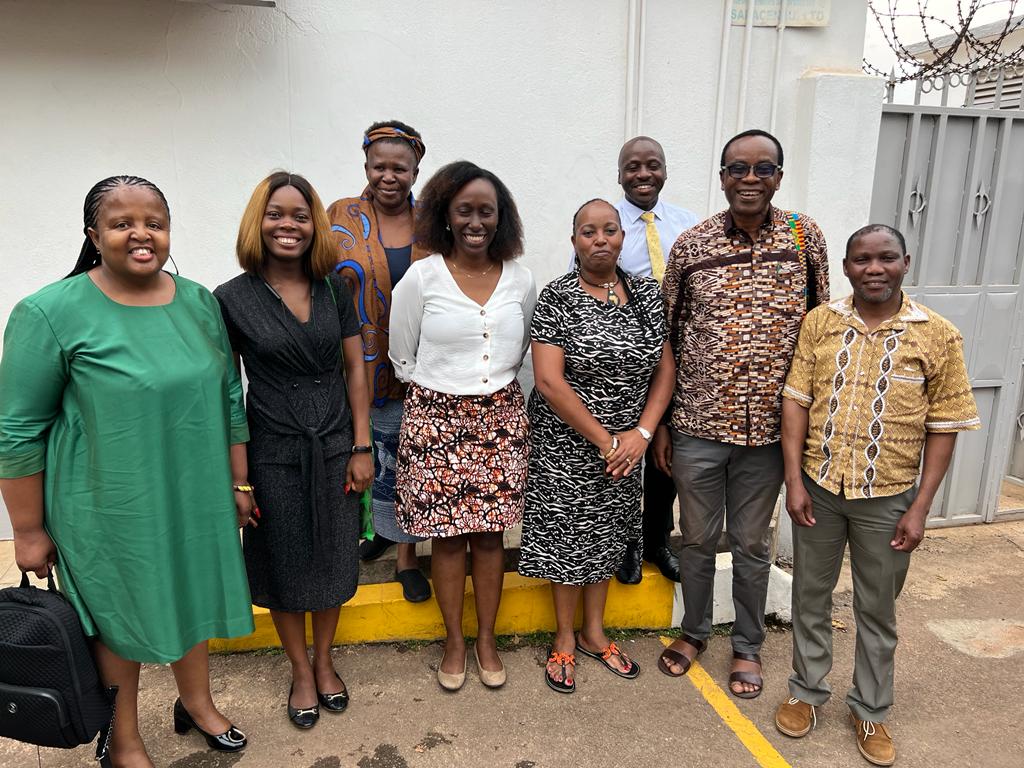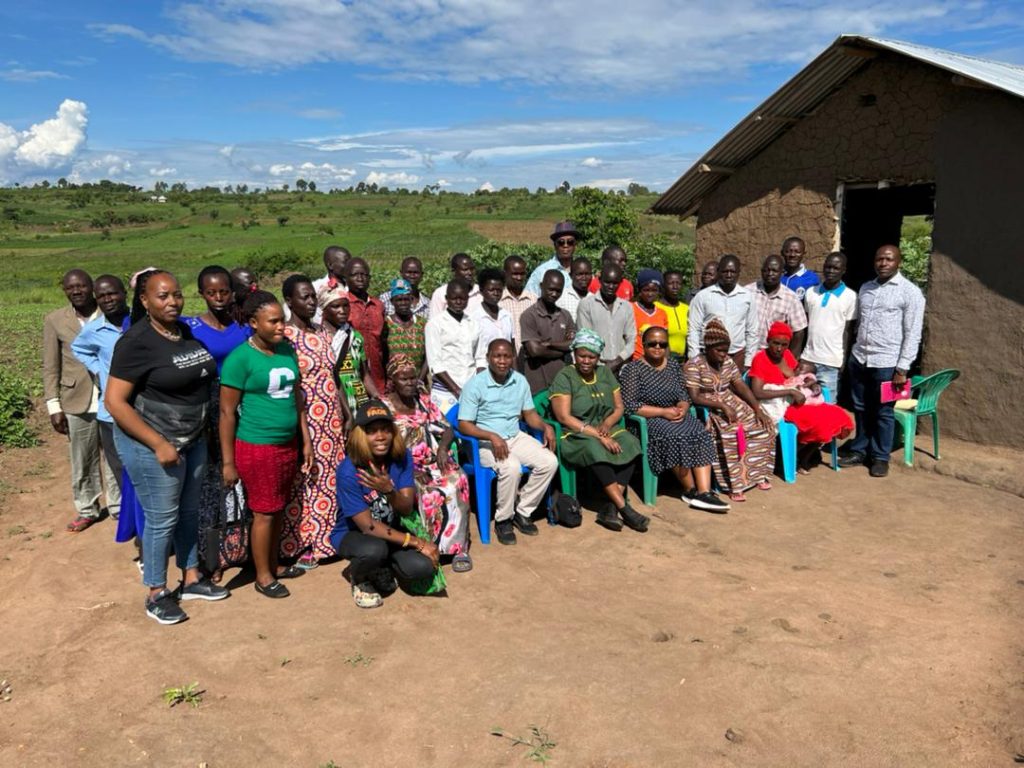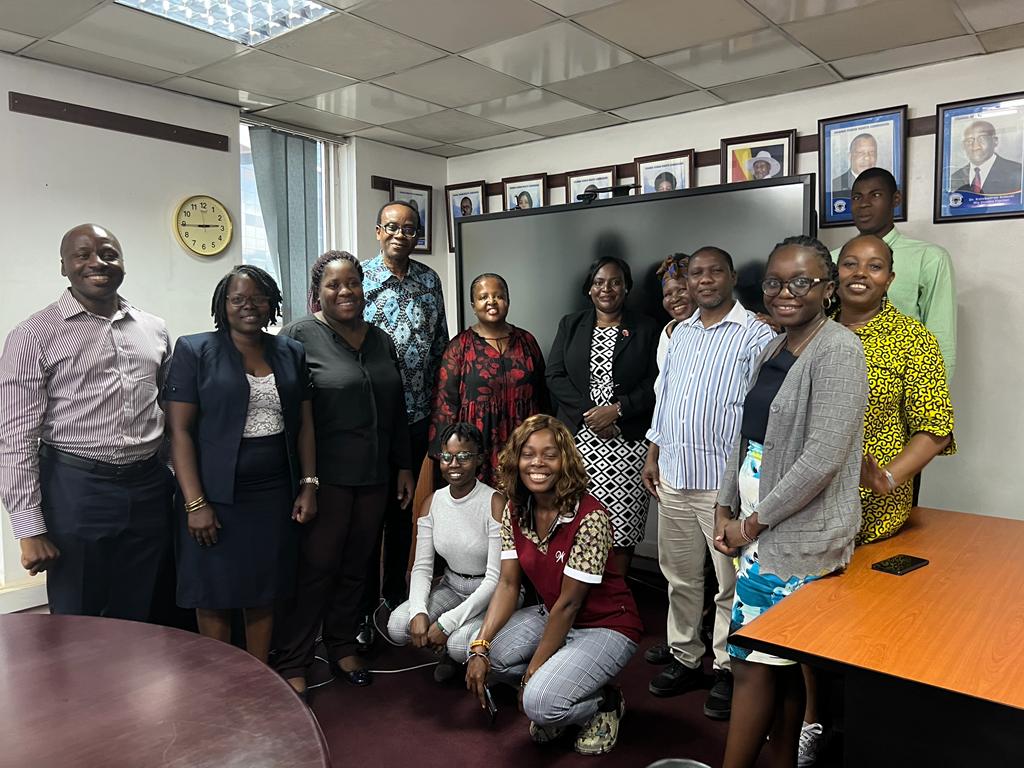FEATURED
Oilwatch Africa Pays Solidarity Visit To AFIEGO And Partner CSOs, Urges Total To Stop Disastrous Extraction Projects In Uganda

Oilwatch Africa and other civil society organizations (CSOs) that defend the environment, community land rights, and human rights in areas with significant oil and gas production have urged TOTAL, a French multinational integrated energy and petroleum company, and all of its financiers to put an end to the disastrous extraction projects in Uganda.
The call came after a three-day meeting that Oilwatch Africa representatives held at the Africa Institute for Energy Governance (AFIEGO) from September 6 to 8, 2022.
According to www.bigpenngr.com, the main objective of the solidarity visit was to show support for partners in Uganda and AFIEGO, who have been encouraging and helping communities from oil and gas regions to protect their environment, land, and human rights against oil and gas and other related projects for more than 12 years.
This was stated in a joint statement signed by Mr. Joram Iuseb, Indigenous Peoples of Africa Co-ordinating Committee, (IPACC), Namibia, Ms. Thuli Makama, Oil Change International (OCI), Swaziland, Ms. Makoma Lekalakala, Earth Life Africa, South Africa, Ms. OduduAbasi Asuquo, Oilwatch Africa, Nigeria; Mrs. Salome Nduta, Coordinator Oilwatch Africa, Kenya; and Mr. Nnimmo Bassey, Health of Mother Earth Foundation (HOMEF), Nigeria.
The delegates expressed concern that since the commercialization of Uganda’s oil, the project-affected communities have encountered a number of difficulties, including delayed and unfair compensation, displacement from their land, increased human rights abuses, and others that have adversely affected their livelihoods.

They argue that projects like Tilenga, Kingfisher, the oil refinery, the East African Crude Oil Pipeline (EACOP), and others will adversely affect vital biodiversity that is of international importance and is protected by UNESCO’s World Heritage and RAMSAR sites like national parks, forests, lakes, and rivers.
The nation’s obligations under the Paris Agreement, Kyoto Protocol, and United Nations Framework Convention on Climate Change (UNFCCC), all of which aim to reduce greenhouse gas emissions, are also violated by these oil and gas projects, the statement reads.
Oil and gas resources are not renewable, and their exploration and exploitation leave permanent scars on both people and the environment, according to the statement that was made public on Wednesday by Ms. Diana Nabiruma, Senior Communications Officer, AFIEGO, Ms. Salome Nduta, Coordinator, OilWatch Africa, and Kome Odhomor, Media/Communication Lead, Health of Mother Earth Foundation (HOMEF).
They argue that if Uganda’s resources are exploited, they won’t last more than a few decades but may cause damage that will affect future generations.
“We discussed during our visit how communities and CSOs can oppose oil and gas activities that threaten human and environmental rights and contribute to climate change, as well as experiences from our respective countries.”
“We saw and heard of the shattered dreams of ordinary people displaced by the oil projects.”
The separation of families and the disruption of regular family life are brought on by relocation.
“Young dreams of getting an education were shattered after interruptions of up to five years without schools, whilst waiting for resettlement. We heard about and saw the pain of families separated from sacred spiritual sites and the desecration of graves of their departed loved ones.
“Replacement houses” have been constructed in complete disregard of the way of life of the affected families, the statement read, saying that; “Family compounds of individual houses situated and constructed with reverence to family traditions and customs were replaced with single houses with shared bedrooms. We heard how compensation was calculated to discount and ignore sources of livelihood like fruit trees, crops, and other life saving biodiversity resources.

In addition, the statement claimed that community advocates and other activists who gave their lives defending the rights and dignity of their communities were threatened, harassed, and arrested as a result of the projects.
According to the statement, during the meetings, delegates engaged stakeholders, such as civil society, government human rights institutions, and nongovernmental organizations concerned about human rights and the situation of environmental defenders, and made it clear that environmental rights are human rights and that protecting defenders’ safety and security is of utmost importance.
The coalition urges AFIEGO, oil-affected communities, and other CSOs to keep up their efforts to promote environmental conservation, the protection of human rights, and the mitigation of climate change in Uganda in order to remain steadfast in defending our environment and, by extension, preserve our socio-ecological values and resilience to the ravages of mindless neoliberal exploitation.
The coalition has meanwhile demanded that TOTAL and all of its financiers stop the disastrous extraction projects in Uganda.
Failure to do so, the group said, will add to the growing list of environmental and human rights violations committed by TOTAL and its financial backers.
They beg the people and government of Uganda not to fall for the alleged deceitful promises of community energy access, economic development, and employment made by TOTAL and other fossil fuel suppliers.
The experience of producing nations and their communities demonstrates devastating levels of pollution, eviction, rising national debt, and levels of extreme poverty, the statement further posited.
“We stand in solidarity with the people of Hoima, Bulisa, and other communities as they fight to protect their livelihoods and survival in the face of ferocious attacks by TOTAL and the fossil fuel industry.”
They demand that all community activists and defenders be shielded from threats, intimidation, and arrest.
Written by Joe Obukata Ogbodu
















